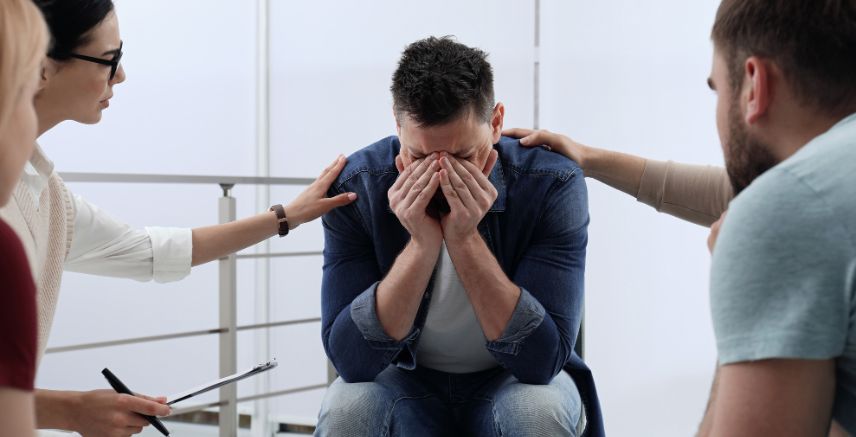A Guide for Recognizing the Warning Signals and Finding Help
Drug addiction doesn’t always look the way it does in movies or on TV. Sometimes, it’s subtle and easy to miss, especially when it’s affecting someone you care about. Learning to recognize the signs of drug addiction early can help you take action before the problem worsens.
This guide breaks down the most common indicators of addiction and walks you through the treatment options available, starting with rehab centers and moving into other forms of support.
Subtle but Serious: Early Signs to Watch For
Drug addiction doesn’t usually happen overnight. It often begins with small changes in behavior or appearance that grow more obvious over time.
Unexplained Personality Changes
If someone seems like a completely different person, there may be more going on than just a bad day. Watch for:
- Sudden mood swings.
- Uncharacteristic aggression or irritability.
- Extreme highs and lows in energy or emotion.
Disconnection from Everyday Life
Addiction often causes people to lose interest in the things they used to care about. If a friend or family member stops showing up for work, school or social events—or stops enjoying hobbies—they might be struggling.
Secretive or Suspicious Behavior
Someone dealing with drug addiction may lie about where they’ve been, become very private or suddenly change their friend group. These behaviors often accompany efforts to hide drug use.
Related Search Topics (Ads)
Physical and Health-Related Signs of Drug Use
Drug addiction has physical consequences that can be visible even before the person admits there's a problem.
Noticeable Appearance Changes
Be on the lookout for:
- Rapid weight loss or gain.
- Dilated or pinpoint pupils.
- Pale or unhealthy skin tone.
- Poor hygiene or grooming habits.
Sleep Disruptions
Depending on the drug, a person might sleep too much or hardly at all. Strange sleeping patterns and daytime drowsiness are common in many types of addiction.
Frequent Illness or Physical Complaints
Recurring nosebleeds, shaking hands, persistent coughs or nausea can all be linked to drug use. While these symptoms can have many causes, when combined with other signs, they raise a red flag.
Emotional and Psychological Clues
Mental health and addiction are closely linked. Many people with substance use disorders experience emotional or cognitive changes.
Increased Anxiety or Paranoia
If someone seems overly anxious, suspicious of others or fearful without reason, this may be tied to substance use.
Depression or Hopelessness
Drugs may be used to numb emotional pain, but they often make things worse over time. Pay attention to expressions of sadness, withdrawal or loss of purpose.
Difficulty Focusing or Remembering
Cognitive issues like forgetfulness, zoning out or struggling to stay on task are common effects of drug abuse, especially with long-term use.
Social and Financial Disruption
Addiction often spills over into other areas of a person’s life.
Financial Problems
Drug use can get expensive. Someone may borrow money frequently, fall behind on bills or even resort to selling belongings to support their habit.
Legal Trouble
Arrests for possession, theft or driving under the influence are strong indicators that someone is in over their head.
Strained Relationships
Arguments, broken trust and distance in relationships often result from addiction. If someone seems to push others away or constantly causes drama, it might be a defense mechanism or a result of their drug use.
Getting Help: Where to Start with Treatment
Recognizing addiction is only the beginning. The next—and most important—step is seeking help.
Rehab Centers: The First Step to Recovery
Professional rehab centers offer safe, supportive environments where people can detox, recover and learn how to live without drugs.
Inpatient Programs
These facilities provide 24-hour care, typically ranging from 30 to 90 days. They’re ideal for people with serious addictions or co-occurring mental health issues.
Outpatient Programs
Outpatient rehab allows individuals to live at home while attending scheduled therapy and support sessions. This option is more flexible and can be effective for mild to moderate addiction.
Counseling and Therapy
Therapy plays a key role in addiction treatment. Licensed professionals help individuals explore the root causes of their drug use and develop strategies for lasting recovery.
Cognitive Behavioral Therapy (CBT).
Motivational Interviewing.
Family Therapy, to help rebuild trust and understanding.
Medications That Support Recovery
For some individuals, medication can ease withdrawal symptoms and reduce cravings. These medications include:
- Suboxone or Methadone for opioid addiction.
- Naltrexone for alcohol or opioid use.
- Antidepressants or anti-anxiety meds, if mental health conditions are also present.
Peer Support and Long-Term Care
Even after rehab, long-term recovery takes work. Many people find strength and accountability through support groups such as:
- Alcoholics Anonymous (AA).
- Narcotics Anonymous (NA).
- SMART Recovery, which uses a science-based approach.
You’re Not Alone
Drug addiction can be overwhelming, but recovery is possible—and help is closer than you think. Whether you're reaching out for yourself or someone you love, taking action can save a life. Start by calling SAMHSA’s free, confidential helpline at 1-800-662-HELP (4357) for treatment referrals and support.
The road to recovery begins with recognizing the signs of drug addiction—and knowing that it’s never too late to ask for help.
Keep reading to learn about the signs of alcohol addiction.
The information on this website is for general educational purposes only and is not a substitute for professional medical advice. Always consult your doctor or qualified healthcare provider before making changes to your health, diet or treatment plan.

